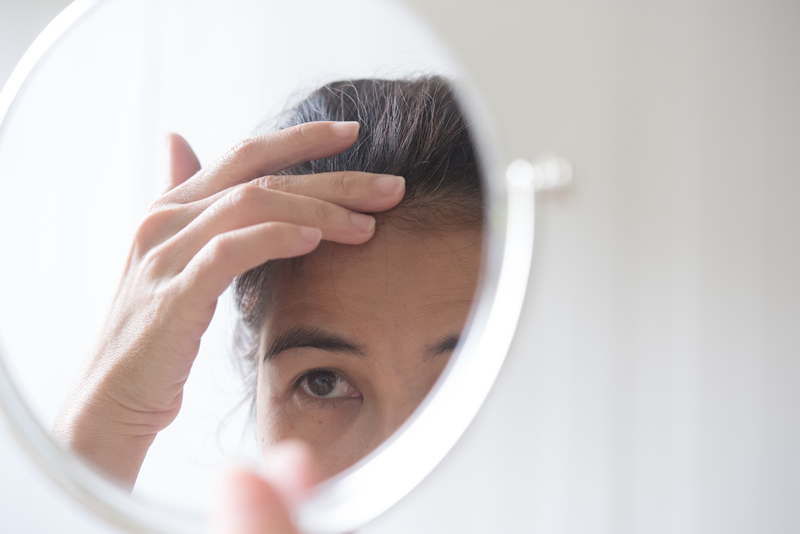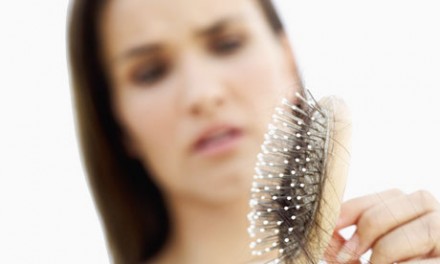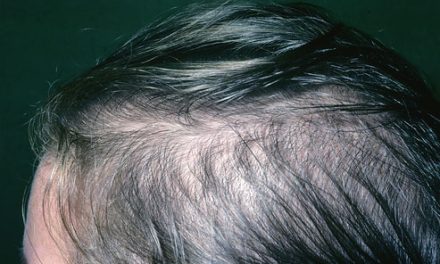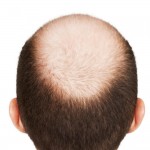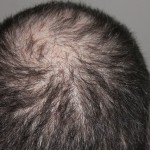Introduction
When discussing females and hair loss, it is quite possible that you may not know who the women in your life are that struggle with this problem. While bald men are everywhere and are barely noticed, a bald woman is more likely to get some extra attention. What makes the lack of visibly bald women circulating in society so surprising is the statistic that Medical News Today reports claiming that 40% of people who suffer from hair loss are female.
Hair loss is especially difficult for women. Depression and anxiety are two common emotional responses that women experience as a result of their hair loss. The sheer silence surrounding the topic of females and hair loss only serves to make the problem seem worse, like a dirty little secret shrouded in secrecy and shame.
The Link Between Hair and Identity for Women
Culturally, a woman’s hair is tied directly to her beauty, femininity, vitality, and sexuality. It is time to contemplate women and hair loss as an identity crisis of sorts since there are no visible bald role models for women to identify with and be inspired by.
Everywhere a woman looks, she is bombarded with shampoo and conditioner ads about how to appeal to the opposite sex. Thick and shiny locks have always been synonymous with sexual appeal whether you’re conjuring up images of Lady Godiva, Charlie’s Angels, or Jennifer Lopez.
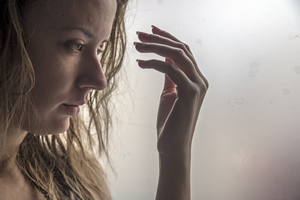 NCBI reports that the loss of hair can be potentially more devastating for some women than losing a breast. In almost all cultures worldwide, luxurious hair is considered an outward sign of good health and beauty. That’s why many women who suffer from hair loss suffer from self-esteem issues and poor body image.
NCBI reports that the loss of hair can be potentially more devastating for some women than losing a breast. In almost all cultures worldwide, luxurious hair is considered an outward sign of good health and beauty. That’s why many women who suffer from hair loss suffer from self-esteem issues and poor body image.
One of the first things a woman considers when she wants to change her appearance is a new hairstyle. Women spend a fortune on their hair, cutting it, coloring it, and blowing it out. Females are intimately connected to their hair and view it as a source of power in the world.
Mental Health Challenges Associated with Hair Loss
There is a definite connection between a woman’s appearance and self-confidence. When a woman feels unattractive, she is less likely to want to engage in social interactions. It is common for female victims of hair loss to retreat from life by avoiding others. Additionally, many women stop taking care of themselves by avoiding exercise and overeating.
Even work performance can be impacted as a response to this type of suffering. Depression typically intrudes into all aspects of life, robbing women of their zest for living.
Medical News Today explains why hair loss is so much harder on women than men. Dr. Glashofer attributes the greater emotional toll on women to society’s pressure on women to have beautiful hair to meet societal expectations.
Both younger and older women emotionally suffer from hair loss. Granted, a younger woman who is still single and looking for a husband or partner might seem to be impacted more than a married, older woman, but that assumption is untrue. Married women worry about disappointing their mates just as much as younger women worry about attracting men.
Refinery 29 reports that part of the reason women are so devastated by baldness relates to the increased societal pressure placed on women to be attractive, first and foremost. While women have made great strides in the last few decades to be accepted as intellectual equals to men capable of much more than taking care of children and their husbands, women still feel a lot of pressure to also look good to remain relevant.
Social Reaction to Hair Loss in Women Versus Men
There is no doubt that men dislike going bald. Males suffer when they start losing hair. The main difference between male and female baldness can be explained by how the world reacts to a bald man and a bald woman. If you walk down any busy street, you’re likely to see bald men on every block. It is unlikely, however, that you will see a single, bald woman.
Granted, you might see a few women with thin hair. Seeing a bald woman is rare. They are wearing wigs, hiding at home, or spending a fortune on hair products and creative hairstyles designed to hide their secret.
If you think about it, there are many bald men who are held up as virile, sex symbols. In recent years, men have embraced their baldness, shaving their heads for all the world to see. How many women have you seen with shaved heads parading about proudly for all to see?
Unfortunately, as a culture, when we see a bald woman, our minds immediately assume that she has had chemotherapy to treat cancer. Most women who are dealing with hair loss due to cancer wear wigs or at least scarves designed to make them presentable to a culture that has trouble accepting a bald female.
Coping Strategies
As is true with all of life’s challenges, being able to put baldness into perspective is the answer to coping with female hair loss. Everyday Health recommends that victims focus on the reality of what hair loss really means. It is simply a cosmetic issue in most cases. It is not a life-threatening event.
By surrounding yourself with supportive people who value you for who you are on the inside, it is much easier to stop stressing about your hair loss. Your family and true friends don’t really care about your hair. That’s a great truth to remember on days when you start feeling inferior as you stare with envy at women with thick, beautiful locks.
Talk therapy has offered women suffering from self-esteem issues some support and relief. Psychologists are trained to help women struggling with problems like this to talk through their feelings and come up with workable solutions. Help is always a phone call away.
Women turn to short hairstyles as the best solution for coping with thinning hair. Hats, wigs, and scarves are also wonderful fashion accessories that can come in handy to look your best and cover up any isolated bald spots.
Conclusion
It is rare that society considers the words, females, and hair loss as belonging in the same sentence. There is a valid explanation for this. Women and hair loss issues are not discussed since women are coping well with the problem. They are a master of disguise. Unfortunately, that does not mean women aren’t suffering considerably before they finally learn how to cope.
Sources: https://www.refinery29.com/en-us/female-hair-loss-mental-health-effects https://www.medicalnewstoday.com/articles/292492#The-severe-emotional-impact-of-hair-loss-for-women https://www.intechopen.com/books/hair-and-scalp-disorders/psychosocial-aspects-of-hair-loss https://www.everydayhealth.com/skin-and-beauty/psychological-effects-of-hair-loss.aspx#:~:text=Hair%20loss%20has%20many%20possible,anxiety%2C%20and%20other%20emotional%20issues. https://www.ncbi.nlm.nih.gov/pmc/articles/PMC1261195/ © 2016-2020 by BaldTalk.com, an LiVenture. All rights reserved. No part of this document may be reproduced or transmitted in any form or by any means, electronic, mechanical, photocopying, recording, or otherwise, without prior written permission of LiVentures.

